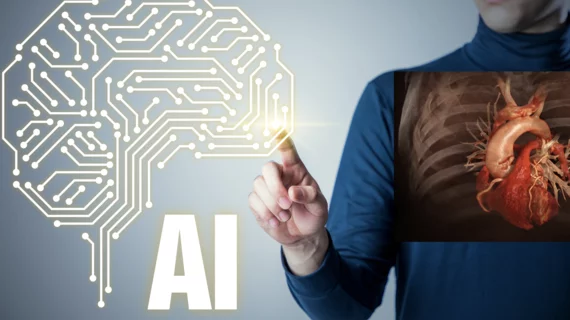Mount Sinai partners with the Chiba Institute of Technology on AI to transform cardiovascular research
Artificial intelligence (AI) is being developed to help make cardiovascular clinical trials more efficient, lead to faster advances in patient care, and bring possible new treatments to heart patients more quickly. The major cardiac research center of Icahn School of Medicine at Mount Sinai announced today that it signed a memorandum of understanding with the Japanese Chiba Institute of Technology (CIT) to collaborate on using AI to enhance cardiovascular disease research.
"Clinical cardiovascular diseases are areas of utmost priority and concern worldwide," said Deepak Bhatt, MD, MPH, FACC, FAHA, director of Mount Sinai Heart, and Dr. Valentin Fuster Professor of Cardiovascular Medicine at Icahn Mount Sinai, in a statement. "Our partnership with the Chiba Institute of Technology presents an invaluable opportunity to harness the power of computational sciences, pushing the boundaries of what we can achieve. I firmly believe that our joint initiatives will contribute to advances in these fields, helping us create a healthier world."
The affiliation between the two institutions aims to enhance the understanding, prevention and treatment of cardiovascular disease, and develop new strategies to combat this global health challenge.
Under this partnership, Mount Sinai and CIT will launch international clinical trials involving AI and interventional cardiology, electrophysiology, heart failure, cardiac imaging, and preventive cardiology. The research will also focus on reducing bias involving gender and race at the intersection of AI and cardiovascular research and aims to improve patient care and outcomes.
"This is a significant step in bridging technology and healthcare, demonstrating our shared commitment to using innovation for the betterment of human health. We look forward to collaborating with our colleagues at CIT to advance the frontier of medical science," explains Dennis Charney, MD, the Anne and Joel Ehrenkranz Dean of Icahn Mount Sinai, and president for academic affairs of the Mount Sinai Health System, said in the same statement.
As part of this partnership, researchers from CIT in Japan will travel to Mount Sinai Heart in New York City to learn more about the latest advances in cardiovascular care and research, and Mount Sinai researchers will visit CIT to gain additional technological expertise.
"This Memorandum of Understanding marks the beginning of a fruitful partnership between CIT and ISMMS," said Joichi Ito, PhD, president of CIT, said in the statement. "We're confident that combining our expertise in computer science with Icahn Mount Sinai’s remarkable work in medicine will result in pioneering advancements and tangible benefits for patients worldwide."
The Chiba Institute of Technology was founded in 1942 as a technological education and research institution. It is known for fostering innovative thinking and advancing technological research. Its research activities include robotics, planetary exploration, software technology and AI to accelerate the digital transformation in society.

